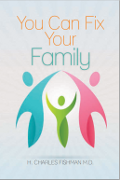Case 4: Diagnosed with lymphoma, presenting with behavioral issues
Patient Details:
4 year old male.
Presenting problems:
- Currently in hospital undergoing chemotherapy and potential radiation to shrink a lymphoma.
- Patient has behavioral difficulties including: being uncooperative with medication, very resistant, throwing tantrums, throwing self on the floor, throwing diapers, urinating and defecating on bed.
Family information and background:
- Mother is 24 and also has a 2 year old and an 8 year old son. She was in a motor vehicle accident a year or so ago. She has a lot of depressive symptoms but has been resistant to psychiatric intervention.
- Mother is in a 2 year relationship with the father of her youngest son and he lives with her and her three children. He is her primary support person.
- They live in financial assisted living and are both on disability. Mother wishes she could go back to work but says it’s difficult with the effects of the motor vehicle accident.
- Mother’s mother is alive but not involved. She does not feel she can trust her.
- She has had friends in the past but again doesn’t feel that she can trust them.
- The patient’s biological father is still involved in his son’s life, and he visits twice a week. They are still technically married but both have new partners. The mother refuses to be in the same room as the patient’s father.
- Mother stays with the patient in his room but is always on her phone, very disengaged. When the patient engages in challenging behaviour she does not intervene until multiple nurses are in the room, and then she pinches his face and yells at him.
- Biological father is great with the patient he was able to encourage him to go to the playroom, eat meals appropriately, to take his medication, used time out rather than corporal punishment.
- Mom described that her son spends the day watching TV and wrestling with younger brother. She watches her own TV and plays on her phone. She never comments on any of her interaction between herself and her children, only to the point that she disciplines them when she needs to, which involves a lot of corporal type punishment.
Clinician’s formulation:
The clinician believes that mom’s depression is the reason for this misbehavior.
What has been tried clinically?
Difficulties are that mom is very resistant to any assistance with behavioral management. She reports her son is fine at home and there is nothing wrong with him. A lot of the time the patient escalates really quickly and demonstrates poor emotional and impulse regulation. In play therapy sessions attempting to dress a duck is difficult for him, he gets upset, starts screaming, throws himself on the floor.
Specific concerns:
The whole treatment team is running into resistance from mom. She has not been forthcoming since the first interaction and does not understand why the team is involved and why they are focusing on her rather than him. They are all concerned and frustrated because it is interfering with this patient’s medical management.
How this consultation can help:
The therapist would like some ideas about how to move forward in working with this family.
Dr. Fishman’s advice to the therapist:
Mother is depressed according to the therapist. Of course she’s depressed. Who wouldn’t be! She had a child with lymphoma. She’s crippled and can’t work and she has an estranged ex-partner, the father of two of her children, with whom she’s embattled.
The issue from my point of view is how to join with the mother. One way of looking at this is a therapeutic impasse, and the overall rule of a therapeutic impasse is you either become more intensive or you broaden the system.
Let’s look at her system. I think she needs a hospital social worker, someone that can provide bridges to other resources and communities. For example, if her vision is going back to work, are there ways of getting resources on that? Is there other family? Does biological father have parents that could be there as a resource? Are there other non-profits that could be available? Support groups in her community?
From the perspective of family therapy, is the child’s misbehavior diffusing conflict in the system? Family therapy is needed to assess and probably address that.
You could also broaden the system by bringing in the oncologist who is in charge of the case. Mom doesn’t want professionals telling her what to do but if you were to have a meeting with mom and the other people involved and have the oncologist tell them they need to be serious because her child needs treatment that he is not getting because of the stress in the system. In other words, triangulate the boy for a good purpose.
You need to find out where the other grandparents are. Their grandchild is dying. It’s unfortunate to say but you can generate a lot of intensity about something as tragic as this. The goals are to make mom more attentive to the boy. However, make sure not to blame this struggling mom. Crucially, she will be able to be more attentive if the system can help alleviate her stress.


